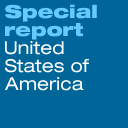 |
|
| |
|
| ||||||||||||||||||||||||||||||||||||||||||||||||||||||||||||||||||||||||||||||||||||||||||||||||||||||||||||||||||||||||||||||||
 |
|
| |
|
| ||||||||||||||||||||||||||||||||||||||||||||||||||||||||||||||||||||||||||||||||||||||||||||||||||||||||||||||||||||||||||||||||

|
US weapons secrets exposed
Julian Borger in Washington Tuesday October 29, 2002 The Guardian Respected scientists on both sides of the Atlantic warned yesterday that the US is developing a new generation of weapons that undermine and possibly violate international treaties on biological and chemical warfare. The scientists, specialists in bio-warfare and chemical weapons, say the Pentagon, with the help of the British military, is also working on "non-lethal" weapons similar to the narcotic gas used by Russian forces to end last week's siege in Moscow. They also point to the paradox of the US developing such weapons at a time when it is proposing military action against Iraq on the grounds that Saddam Hussein is breaking international treaties. Malcolm Dando, professor of international security at the University of Bradford, and Mark Wheelis, a lecturer in microbiology at the University of California, say that the US is encouraging a breakdown in arms control by its research into biological cluster bombs, anthrax and non-lethal weapons for use against hostile crowds, and by the secrecy under which these programmes are being conducted. "There can be disagreement over whether what the United States is doing represents violations of treaties," Mr Wheelis told the Guardian. "But what is happening is at least so close to the borderline as to be destabilising." In a paper to be published soon in the scientific journal Bulletin of the Atomic Scientists, the two academics focus on recent US actions that have served to undermine the 1972 Biological Weapons Convention. In a move that stunned the international community last July, the US blocked an attempt to give the convention some teeth with inspections, so that member countries could check if others were keeping the agreement. Mr Dando believes Washington's motive for torpedoing the deal, which had the support of its allies, was to maintain secrecy over US research work on biological weapons. He said that work includes: CIA efforts to copy a Soviet cluster bomb designed to disperse biological weapons A project by the Pentagon to build a bio-weapon plant from commercially available materials to prove that terrorists could do the same thing Research by the Defence Intelligence Agency into the possibility of genetically engineering a new strain of antibiotic-resistant anthrax A programme to produce dried and weaponised anthrax spores, officially for testing US bio-defences, but far more spores were allegedly produced than necessary for such purposes and it is unclear whether they have been destroyed or simply stored. In each case, the US argued the research work was being done for defensive purposes, but their legality under the BWC is questionable, the scientists argue. For example, a clause in the biological weapons treaty forbids signatories from producing or developing "weapons, equipment or means of delivery designed to use such agents or toxins for hostile purposes or in armed conflict". Furthermore, signatories agreed to make annual declarations about their biodefence programmes, but the US never mentioned any of those programmes in its reports. Instead, they emerged from leaks and press reporting. The focus on Washington's biological and chemical weapons programme comes at an awkward time for the Bush administration, which is locked in negotiations at the UN for a tough resolution on arms inspections of Iraq. According to Mr Dando, British and US research into hallucinogenic weapons such as the gas BZ encouraged Iraq to look into similar agents. "We showed them the way," he said. Mr Dando added that the US was currently working on "non-lethal" weapons similar to the gas Russian forces used to break the Moscow theatre siege. Those include "calmative" agent which are designed to knock people out without killing them. "What happened in Moscow is a harbinger of what is to come," Mr Dando said. "There is a revolution in life sciences which could be applied in a major way to warfare. It's an early example of the mess we may be creating." He added that Britain "is implicated as well", as the Pentagon's Joint Non-Lethal Weapons Directorate has worked with British officers on its research. Jonathan Tucker, a chemical weapons expert at the US Institute for Peace in Washington, said much of the work on non-lethal weapons was being carried out by an institute under the US justice department but was funded by the Pentagon. "They are trying to keep it at arms length, but it is problematic especially for military purposes. The chemical weapons convention makes a very clear distinction between riot control and incapacitants," he said. While Mr Tucker believes that such knock-out gases are explicitly banned under the treaty, Mr Dando and Mr Wheelis believe the Pentagon has exploited a loophole that allows for such weapons for "law enforcement purposes". But
by blurring the edges of the treaty, they argue the US is inviting
other countries to do the same. The US, Mr Dando said, "runs the very
real danger of leading the world down a pathway that will greatly
reduce the security of all." Printable version | Send it to a friend | Read it later | See saved stories | |||||||||||
 |
 |